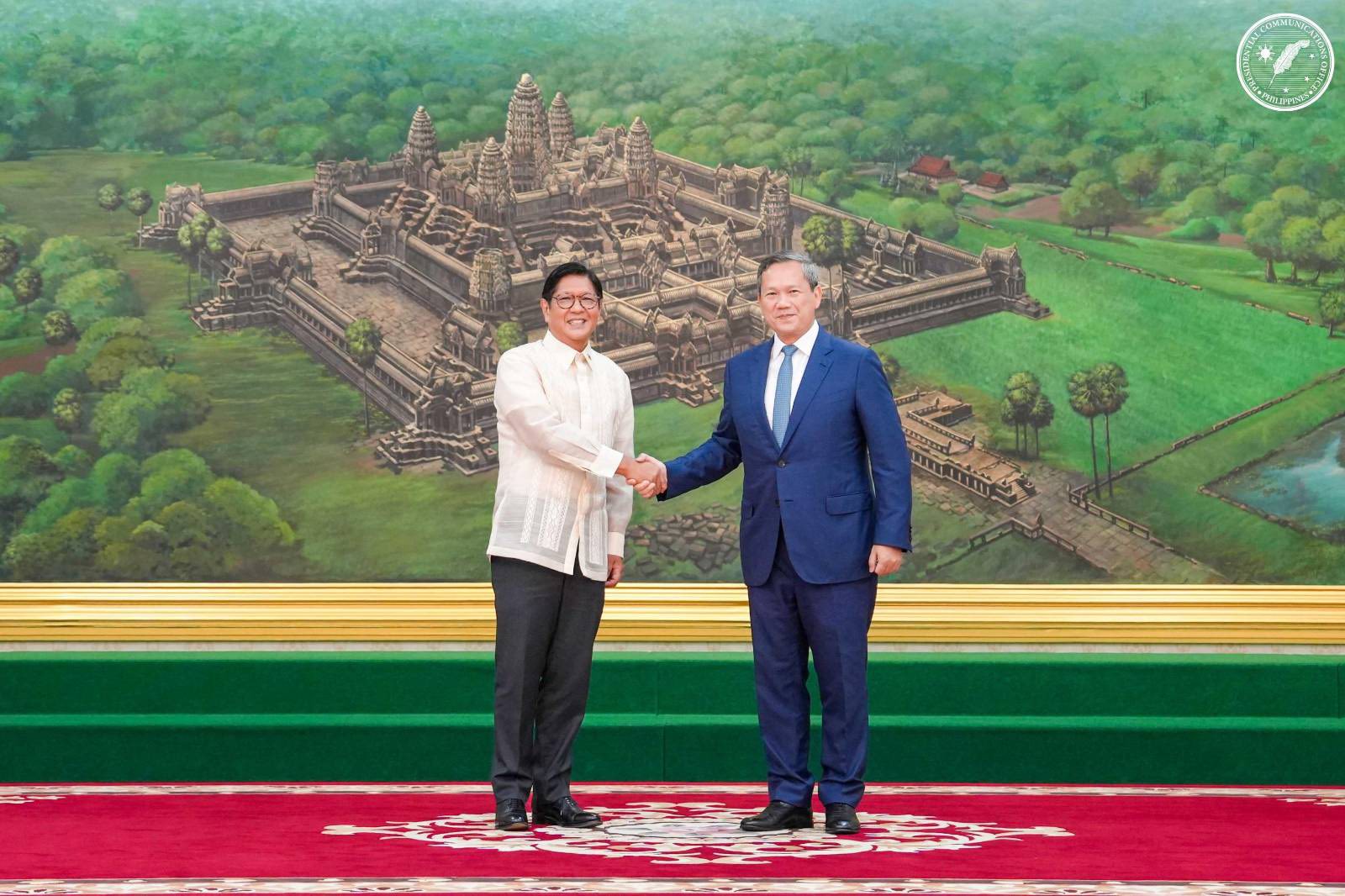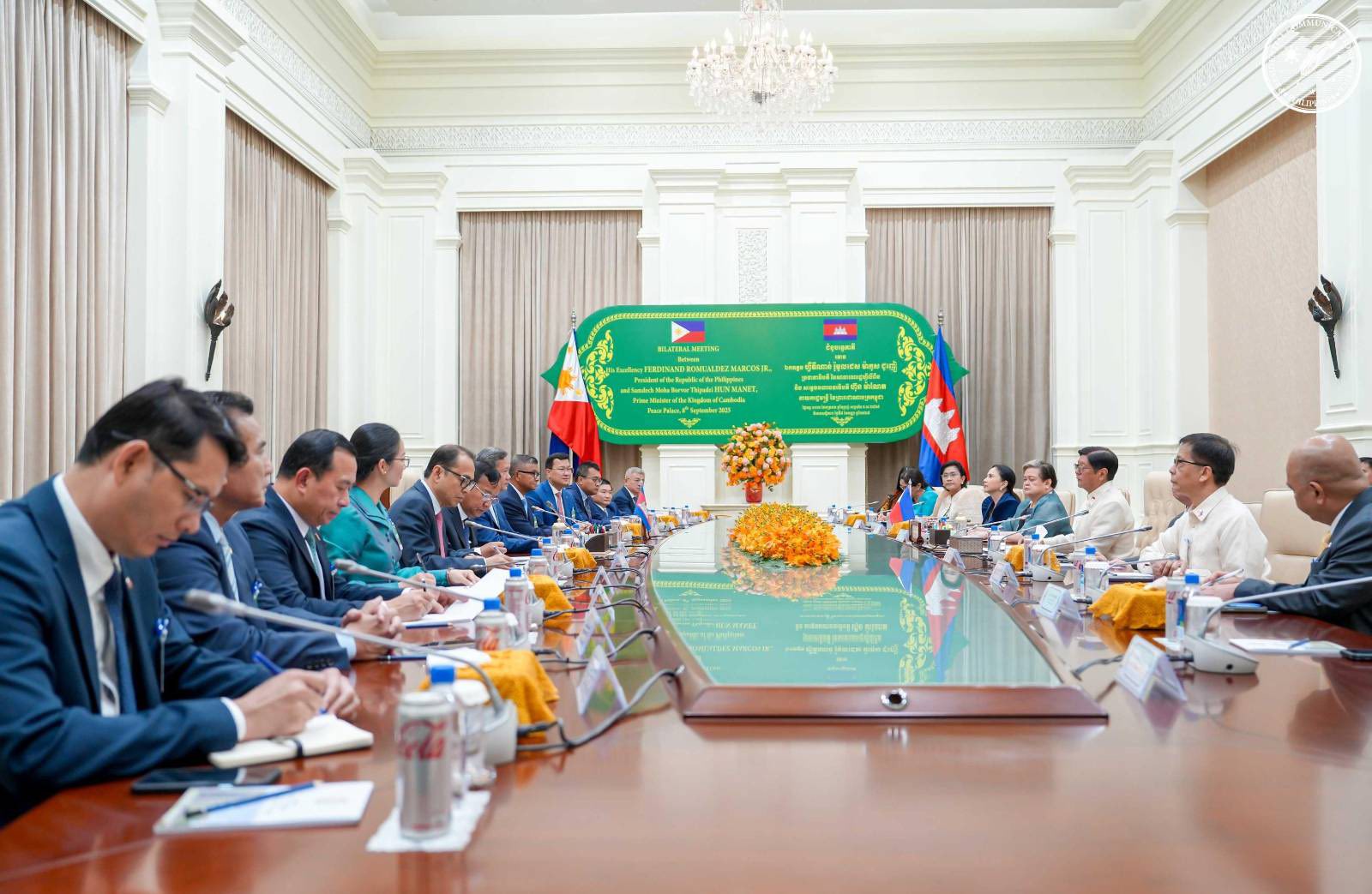
By Dean Aubrey Caratiquet
President Ferdinand R. Marcos Jr. honored Phnom Penh’s independence and inked key agreements on police cooperation, higher education, and air connectivity on the 2nd day of his state visit to Cambodia this Monday.
The President, together with his wife, First Lady Liza Araneta-Marcos, began with wreath laying ceremonies at the Independence Monument and the adjacent Monument of the Late King-Father of Cambodia, His Majesty Norodom Sihanouk, before proceeding to the Peace Palace for the welcome ceremony.
The First Couple was welcomed by Acting Head of State and Senate President Hun Sen and his spouse, Bun Rany, on behalf of His Majesty King Norodom Sihamoni.
Together with Cambodian Prime Minister Hun Manet, Marcos witnessed the signing of the following agreements:
1. Amendment of the Memorandum of Understanding (MOU) between the Philippine National Police of the Republic of the Philippines and the Cambodian National Police of the Kingdom of Cambodia on Cooperation in Combating Transnational Crime
2. MOU between the Commission on Higher Education of the Republic of the Philippines and the Ministry of Education, Youth, and Sport of the Kingdom of Cambodia on Cooperation in Higher Education
3. Air Services Agreement between the Republic of the Philippines and the Kingdom of Cambodia

Unwavering commitment
The Chief Executive, meanwhile, lauded the Kingdom of Cambodia, its government and its people for the warm hospitality accorded to Marcos, which he cites as a reflection of strong linkages forged between Filipinos and Cambodians over several centuries.
In his speech at a joint press conference, Marcos noted the potential for further expanding the bilateral relationship between the Philippines and its fellow Association of Southeast Asian Nations (ASEAN) member state.
“We recognized that the growth and resilience of our economies depends on opening new avenues of cooperation, expanding opportunities in trade, agriculture, renewable energy, and the digital economy,” President Marcos said.
However, he cited the need to better address transnational crimes and protect the welfare of citizens from both nations: “We also acknowledged the pressing challenges across borders: human trafficking, cybercrime, illicit drugs, and other transnational threats. These dangers affect the safety of our citizens and the stability of our societies.”
“It is in this spirit that we agreed to strengthen collaboration among our law enforcement and security institutions so that our collective response will be swift, coordinated, and effective.”
The President concluded his remarks by hailing the fruits of today’s engagements with Cambodia as the beginning of a new phase in the partnership between both countries, one that leaves the door open for greater economic opportunities, deeper cooperation on matters of security, and the common resolve to uphold peace and stability in our region.
av
